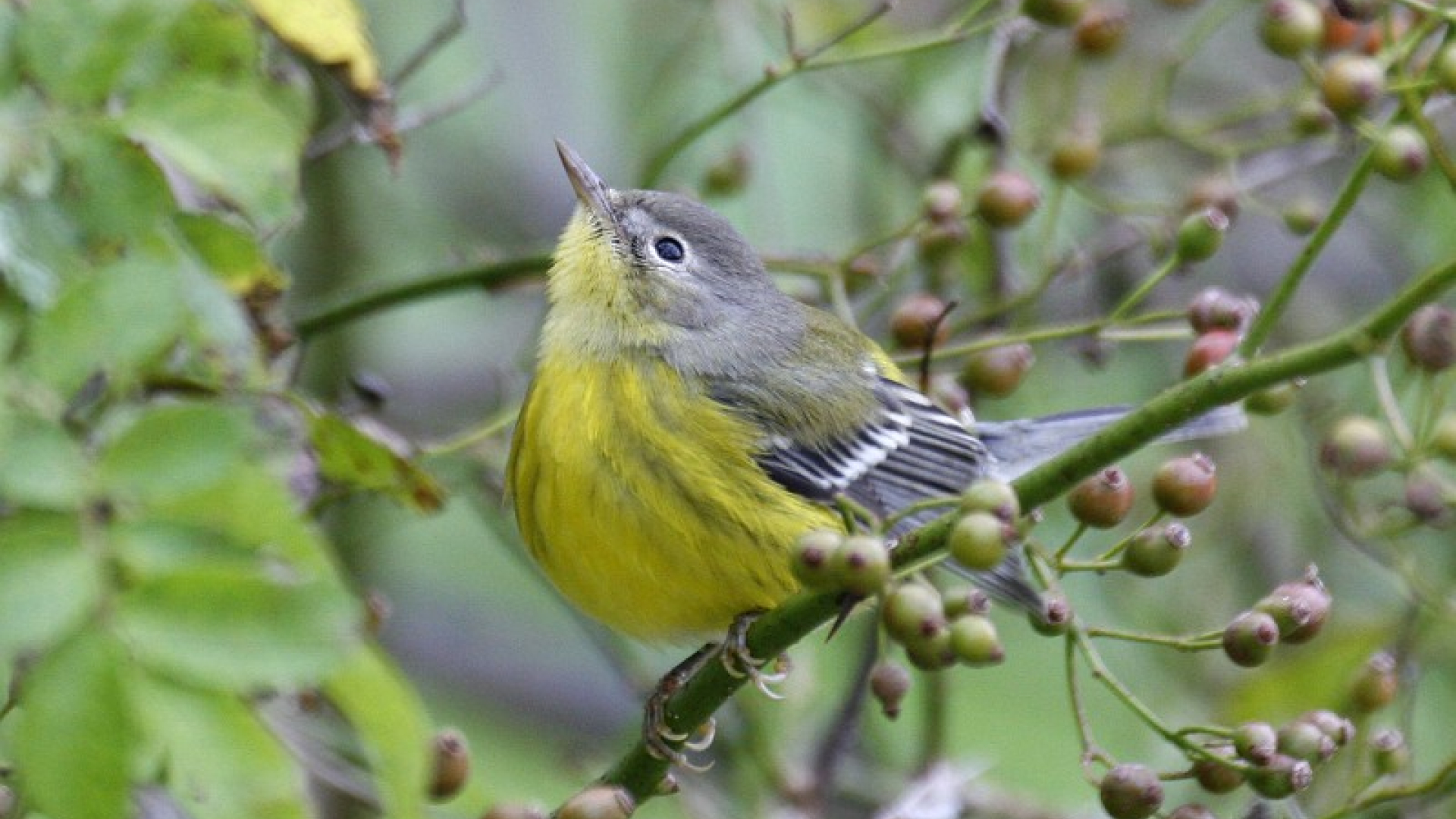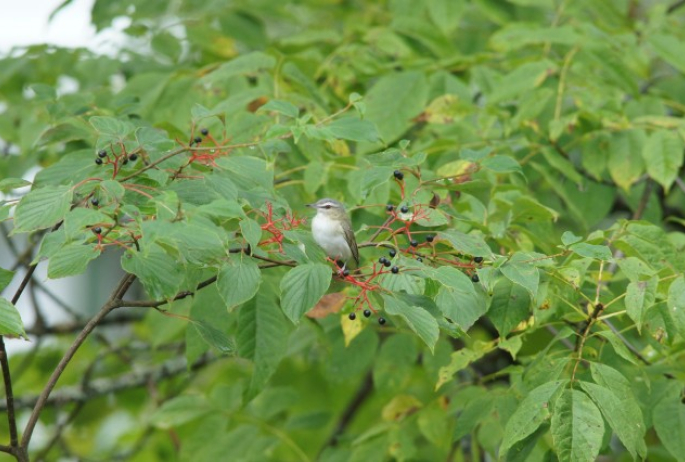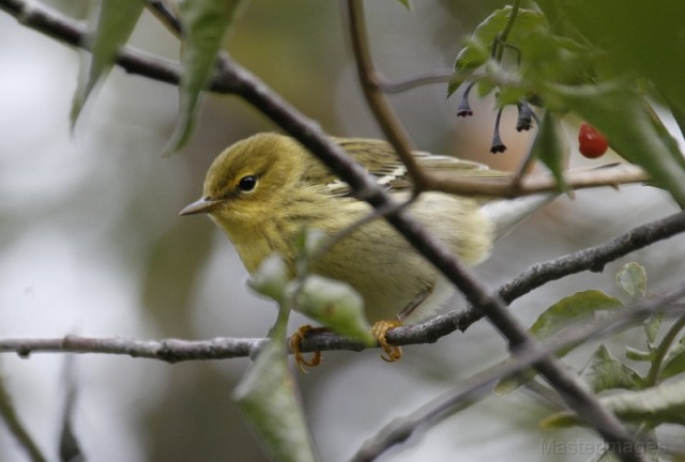Summer’s advance is marked on the bird calendar by the start of fall migration – a long process which extends into the cold months of the year. In August and September it revolves around songbirds and shorebirds heading south, getting ahead of chilly temps and difficulty in finding food. As a result, I’ve been in the Champlain Valley recently searching for shorebirds, and I’ve been on trails in the Tri-Lakes Region, noting a variety of songbird species.
But one of my favorite places to find birds – particularly on fall migration – is in my own yard. When I’m not in the field, I do a lot of my work from home, and it allows me to sit outside (what I’m doing right now as I write this) and see what birds are moving through the neighborhood.
Many of these birds nested in the area and they have formed loose flocks since – moving around in the neighborhood in their search for food. Other birds are moving in from the north augmenting these flocks and making it fun to see what has migrated in recently. Currently where I sit, I hear the twitter of black-capped chickadees and dark-eyed juncos, as well as a calling red-eyed vireo. 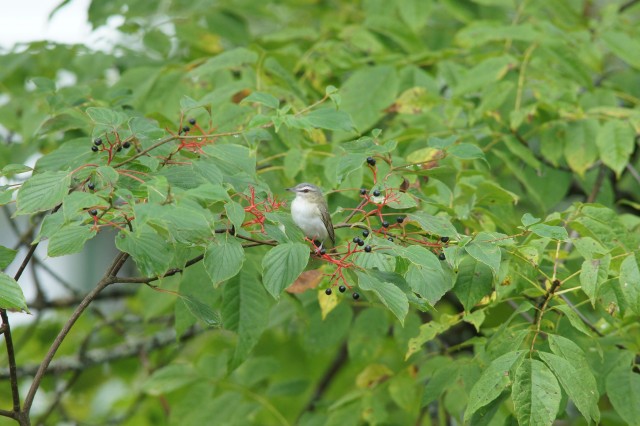
These common, local birds nested in the neighborhood and I often find other local species mixed in with them. For instance, last week I found species such as black and white warbler, northern parula, and black-throated green warbler. My yard also attracts other common species such as red-breasted nuthatch, hairy woodpecker, song sparrow, ruby-throated hummingbird, and white-throated sparrow.
But it is the less common species which are attracted to the activity in my yard which get me most excited. For instance, several days ago I found a common yellowthroat in my yard – not an uncommon bird, but one that isn’t easily found in my neighborhood. Thursday and Friday last week were productive as well with a good variety of birds, but the rainy day on Saturday proved to be the best.
That morning I kept stopping work at my computer in order to step outside and check out the movement of birds in my yard where chickadees and red-eyed vireos led species like blue-headed vireo and least flycatcher around. These flocks also included 8 species of warblers: yellow-rumped, black and white, black-throated green, northern parula, blackburnian, magnolia, Tennessee, and Cape May, the latter two being migrants from the north. Migrants are always exciting finds, and I’ve found Cape May in my yard the past three days! 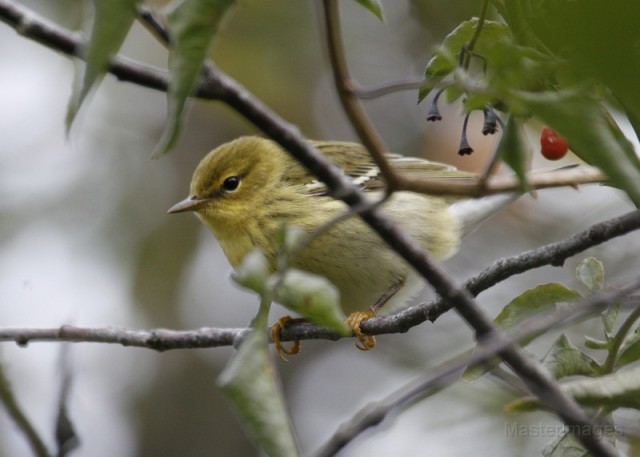
I took out my camera on Saturday and attempted a few photos between the rain drops, trying at the same time not to miss anything in the ebb and flow of the flocks – it would be easy to overlook individual birds. And that is one of the fun things about these late summer groups of birds. You never know what you will find and you have to be vigilant to discover what species are mixed in these leaf-shaking flocks.
These post-breeding and migratory flocks can also settle almost anywhere, making my yard – or anyone’s yard – a perfect place to look and listen for them. And so I will continue to sit outside as I write and keep one eye on my work and the other on the trees in my yard. Because you never know what might pay you a visit.
